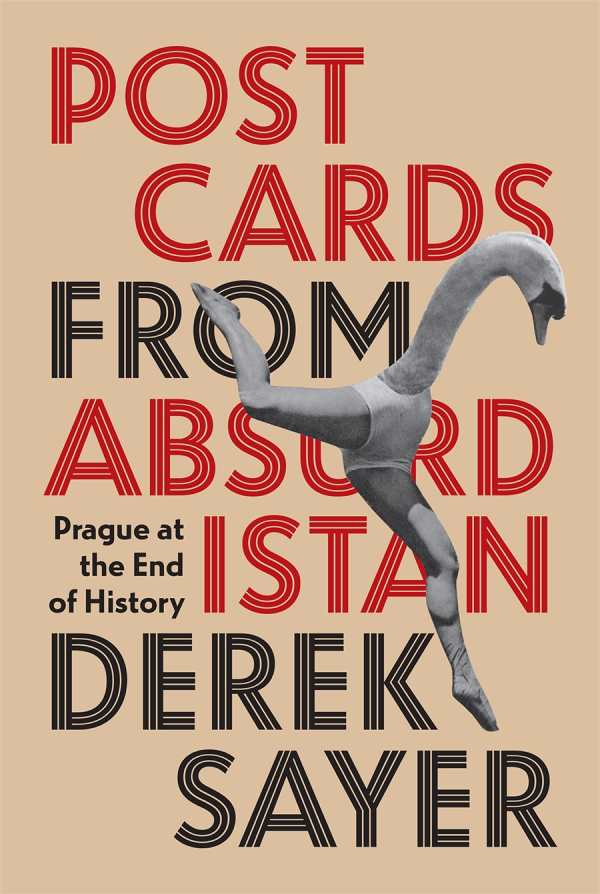Postcards from Absurdistan
Prague at the End of History
Derek Sayer’s Postcards from Absurdistan is an encompassing review of cultural and sociopolitical Prague from tumultuous 1938 onward, detailed with compassion for the Czech people. It is meticulous in recounting the regimes they have endured.
One of the best-known denizens of Prague, Franz Kafka, seemed to predict the city’s future: his fiction was set in an often surreal world with twisted laws and little hope for escape. Though Kafka died before the 1939 Nazi occupation of Prague, the invasion of the Third Reich exceeded any nightmare he envisioned.
Sayer notes that Hitler was obsessed with reclaiming the region. His armies clamped down on personal, artistic, and political freedoms. Dissenters and Jews were arrested, executed, or sent to concentration camps. Milena Jesenská, a renowned journalist, activist, and one of Kafka’s lovers, died in 1944 during her Ravensbrück camp internment.
The book further details Czechoslovakia’s retaliatory wave of anti-German hatred following World War II and the country’s later Soviet domination. The multifaceted artistic climate that existed before the war was now forced to work around new forms of socialist oppression. Some writers, like Milan Kundera, chose to live in exile. Václav Havel, a poet, playwright, and politician, later became the Czech president following 1989’s Velvet Revolution.
Postcards from Absurdistan features integral Czech influences and contributions, such as the architecture of Antonín Raymond and Jan Letzel’s Genbaku Dome in Japan, which survived the Hiroshima atomic bomb. Max Brod, Kafka’s executor, escaped Prague days before the Nazi takeover, bringing his friend’s literary legacy with him to Tel Aviv. Director Alfred Radok inspired the cinematic Czech new wave movement, while two Czech films would win Academy Awards in the 1960s.
Fascinating and capacious, Postcards from Absurdistan surveys Prague’s anguished recent past, raising concerns for its future amid new global conflicts and challenges.
Reviewed by
Meg Nola
Disclosure: This article is not an endorsement, but a review. The publisher of this book provided free copies of the book to have their book reviewed by a professional reviewer. No fee was paid by the publisher for this review. Foreword Reviews only recommends books that we love. Foreword Magazine, Inc. is disclosing this in accordance with the Federal Trade Commission’s 16 CFR, Part 255.

